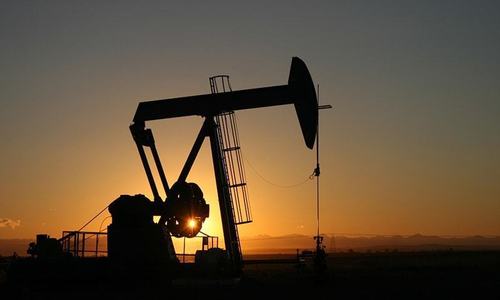KARACHI: Refineries are in a stand-off with the government. If it was a staring contest, they would’ve already lost by blinking at least three times. Yet the contest continues as the country’s energy czars insist the crude refiners must cede further ground.
One side paints the other as rent-seeking leeches that have fed off the taxpayer money for decades. Conversely, the other side says its price-fixing, whimsical regulator is like a cruel pet owner that is deliberately starving his dog to death.
The bone of contention is the “partially approved” Pakistan Oil Refining Policy 2021. The government wants refineries to “upgrade” themselves at a total cost of roughly $4 billion so that the country can reduce its imports of value-added, expensive fuels. The refineries agree, but they have demanded tariff protection by means of “deemed duty” (more on that later).
Tightly regulated regime
Refineries are free to import crude oil but they can’t sell it at a price of their liking. The government sets prices for them. In other words, the lever of their profitability is controlled by the regulator.
Back in the 1970s and ’80s, the government would pay refineries 18pc guaranteed returns on equity every year. Then the government introduced the makeup margin mechanism in the early 1990s. It meant that if a refinery posted a loss of, say, Rs1 billion in a given year, the government would fully compensate it by tinkering with the pricing of its product slate in the following year. Despite the loss, the shareholders of the refinery would receive 10pc of its paid-up capital as a guaranteed annual return.
Then came the Musharraf years. Anti-subsidy views caught on among policymakers. The makeup margin mechanism gave way to tariff protection in the early 2000s.
Based on average prices in the preceding years, the government built financial models that determined the optimum levels of tariff protection to bring the refining sector to its breakeven point.
It announced a “deemed duty” of 10pc, 6pc and 6pc on diesel, petrol and furnace oil, respectively. This meant refineries could add that much amount to the final price of their products to stay competitive against imported fuels.
In case of profit, a refinery could disburse up to 50pc of its paid-up capital as dividends while the rest of the profit would go into a special reserve account. That accumulated sum was to be used to offset future losses and the upgrading of refineries. That’s how tariff protection replaced the makeup margin mechanism in the 2000s.
Where things are at
As soon as global oil prices became favourable and refineries’ profitability went up, the government eliminated tariff protection on all products except diesel. With the onset of the 2008 recession, it reduced it from 10pc to 7.5pc, which continues to date.
Here’s a one little regulatory gimmick though.
The government is currently collecting a 10pc customs duty on both diesel and petrol. Hypothetically speaking, diesel worth Rs100 sells for Rs110 because of this levy. Although the local refinery charges its customers Rs110, it’s supposed to refund Rs2.50 to the national kitty as it’s in excess of the deemed duty of 7.5pc. In case of petrol, refineries have to refund to the exchequer Rs10 since the product has no deemed duty.
This amount — call it tariff protection or deemed duty — lies at the heart of the dispute between the government and refineries.
When the consultation process for the new refining policy began under the special assistant to the prime minister (SAPM), Nadeem Babar, refineries demanded that they be given 13pc deemed duty on both diesel and petrol.
The government initially agreed. But then it revised it down to first 11pc and then 10pc on both diesel and petrol.
The government changed its mind once again with the arrival of the new SAPM and petroleum secretary. The new energy managers came up with another condition: any incremental revenue generated by the deemed duty would go into an escrow account and could only be used for refinery upgrades. Moreover, refineries would be able to fund only 40pc of their upgrade costs using that fund.
It meant that a refinery could draw only Rs40 million if its upgrade project was worth Rs100m even though the accumulated fund ran into billions.
Until this point, refineries accepted these conditions “reluctantly”.
But the negotiations led up to a blind alley when the government imposed another condition. It said refineries would get the money for upgrades only after carrying out the actual development work. At the last count, refineries had proposed that they be allowed to collect the funds at the engineering, procurement and construction stage.
The cabinet committee on energy has approved the draft policy except the parts that relate to the upfront tariff protection and drawing rights. In background interviews with Dawn, top management of two refineries said they are not willing to budge anymore.
“They think they’re offering us a bailout from public money. They’re absolutely wrong. If the government can’t give us tariff protection, it should deregulate us. Let us fix our own ex-refinery prices while matching/competing with imports freely,” said the chief of a large refinery.
Published in Dawn, October 3rd, 2021














































